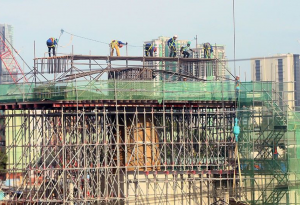Even as the remaining months leading to the 2019 midterm elections in May will likely keep legislators running for reelection busy, the Department of Finance (DOF) is hopeful that Congress can still pass the remaining tax reform packages, especially the second batch aimed at reducing corporate income tax while rationalizing the fiscal incentives being enjoyed by investors.
“The current Congress still has several remaining session days in the first half of 2019 before a new set of lawmakers gets elected in May, providing them some time to tackle the proposals under the Duterte administration’s comprehensive tax reform program, and hopefully approve them,” Finance Secretary Carlos G. Dominguez III said in a statement.
But given that the May elections are fast approaching, Dominguez admitted that the upcoming polls “could dim hopes on getting the tax reform packages approved in the current Congress.”
As such, “we will discuss again with them (legislators) and see how we can push the tax reform packages,” Dominguez said.
The 17th Congress will return to session from its Christmas break on Jan. 14, after which it will again adjourn on Feb. 9 ahead of the May polls.
Congress will resume on May 20 before the sine die break on June 8, paving the way for the 18th Congress in July.
Five more tax packages are pending in Congress, including the second package or the Tax Reform for Attracting Better and High-Quality Opportunities (Trabaho) bill.
While the proposed Trabaho bill already passed in the Lower House, it stalled in the Senate as senators wanted to ensure that it would not lead to job losses.
“The DOF is urging the Congress to place Package 2 in the frontburner as this is projected to generate some 1.4 million jobs, mostly in small and medium enterprises (SMEs), over the next decade and create a business environment conducive to inclusive growth. Under the current corporate taxation, a select group of big businesses, many of them on the elite list of Top 1,000 corporations, pay preferred tax rates ranging from 9-13 percent while the rest, including SMEs, pay the steep 30-percent corporate income tax, which is the highest in the region,” it said.
Also pending congressional approval are a portion of package 1B calling for higher Motor Vehicle Users’ Charge (MVUC) and package 2+ that will further jack up excise taxes on “sin” products such as alcohol and tobacco.
According to the DOF, “package 2 plus, which will help fund the universal health care (UHC) program, is estimated to yield an additional P60 billion in the first year—that is, if the DOF proposal to raise tobacco excise taxes to P60 per cigarette pack in 2019 and by 9 percent thereafter, and the schedular excise tax increases on fermented liquors, distilled spirits and wines, to P40 per liter and P40 per proof liter, and 10 percent, respectively, starting 2019 are adopted by the Congress.”
Package 2+ will also slap taxes on all mining operations.
Package 3, meanwhile, will introduce property valuation reforms, particularly by using the Schedule of Market Values (SMVs) as the single valuation for national as well as local property taxation.
“Packages 2 and 3 are expected to be revenue neutral, while the DOF proposal under package 1B on the MVUC is expected to bring in an additional P15 billion in a full year of implementation,” the DOF said.
Package 3 is also expected to “haul in additional funds for the local government units (LGUs)” once the system becomes more efficient, equitable and transparent, it added.
As for package 4, the measure will rationalize the existing rates on capital income taxation.
“Package 4 will initially collect additional revenues for the government and will gradually be revenue neutral once it is fully implemented,” according to the DOF.
Finance Assistant Secretary Antonio Joselito G. Lambino II assured legislators that they could seek the DOF’s assistance anytime to better understand these remaining tax packages.




